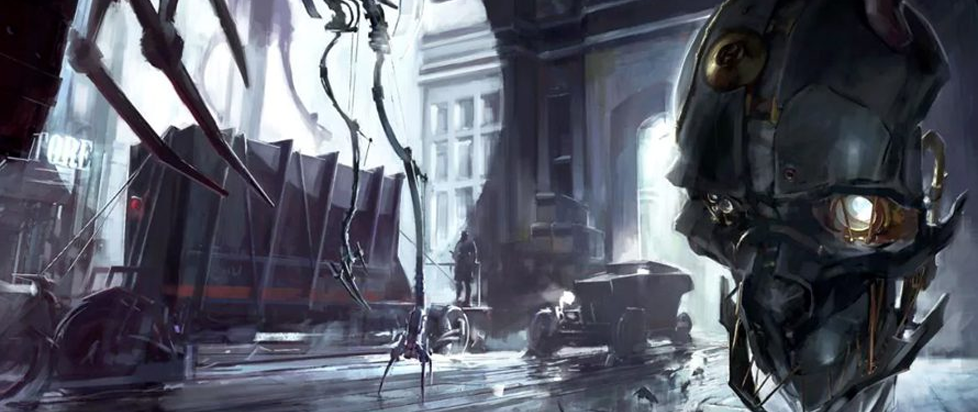
Dishonored’s Chaos System Was Never Punishing You
The original Dishonored’s Chaos system had a thesis: that you did not interact with the world in isolation, and power has the potential to create chaos. Introduced in the first game, the world reflected the brutality of your actions: the more you killed, and the more outward mayhem you contributed to, the more plagued Dunwall became – by rats, disease, and surveillance. For players who wanted to lean into the ‘toybox’ of immersive sims, however, this system felt like a punishment, discouraging them from engaging with the mechanics in front of them. It was ultimately retooled in the second game, and dropped entirely in the last, but the original Chaos system makes its argument best.
The first Bioshock, which was released a few years before the first Dishonored, had its own ethical dilemma centred around lethality. The choice to harvest resources from little sisters or let them live was placed in the game’s critique of objectivism; sparing the children at cost to yourself being exemplary of altruism. The relevance of this choice fell apart, however, when it turned out that players who spared the girls received even greater rewards – altruism was no longer a factor, and the thematic implications fell apart. The choice becomes aesthetic.
Dishonored, conversely, incentivises violence in the same way as many other games: it’s fun. The majority of the powers you can unlock and tools you can wield revolve around interesting ways to kill. You can possess someone and use time travel to walk them into the line of fire of their own gun, rig chains of electrocutions, or just plain lob a tank of explosive whale oil on top of a guard patrol. To play non-lethally in the first Dishonored requires you play stealthily – you’ll only be upgrading powers around movement and scouting, and your arsenal is limited to a chokehold and sleep darts.
The idea that engaging with the systems put in front of you can also lead to a worse world-state and a bad ending is seen as punishing, but it isn’t punishing for the player – it’s punishing for Corvo. (As Dominic Tarason points out, the high Chaos increase in enemies and changed final level actually rewards the aggressive player mechanically by giving them more to engage with.)
As you eliminate your various targets, the ironic worse-than-death fates you can arrange for them all subvert the ways they’ve exploited their own positions of power and privilege. Slave owners can be abducted to work in their own mines, the High Overseer can be shunned by the dogma he dictates, and the leader of the conspiracy undone by the evidence of his own political ambition.
Already trained to be the Royal Protector, Corvo has come into a position of unique power at the hands of The Outsider, and it’s for the player to choose if he exploits that power or not. If the player kills recklessly, the corpses feed the rats that spread the plague, as well as heighten the presence of violent guards. To be able to visibly observe that you are – literally – contributing to the plague on society, and prioritise the delight in power, can only rightfully earn the ending where both the city and daughter ‘saved’ are worse off for your protection.
In keeping the Chaos system, but making non-lethal choices just as ghoulishly fun, Dishonored 2 creates the same aesthetic-only conflict as Bioshock did. It’s the difference between purchasing an arc mine or a stun mine, a knockout grenade or a shrapnel one. You can even indulge in face-to-face combat, so long as you’re mindful to knock out your off-balance opponents as a final blow. There’s no need to be stealthy, avoidant, or limit your use of supernatural powers to stay at low Chaos – brutality and non-lethal aggression are different flavours of the same mechanical play.
In Dishonored 2, the world is, uncritically, your playground. Corruption isn’t something to strive to avoid despite the influence of power, but something to easily opt in or out of. It might be more fun to play, but it’s a flattened version of what Dishonored’s Chaos system introduces: a world where you can take exactly what you want, and have fun with it, but where the cost is laid bare.
Ruth Cassidy is a writer and self-described velcro cyborg whose DMs are open for pictures of mountains & your cats. Direct them to twitter @velcrocyborg.





